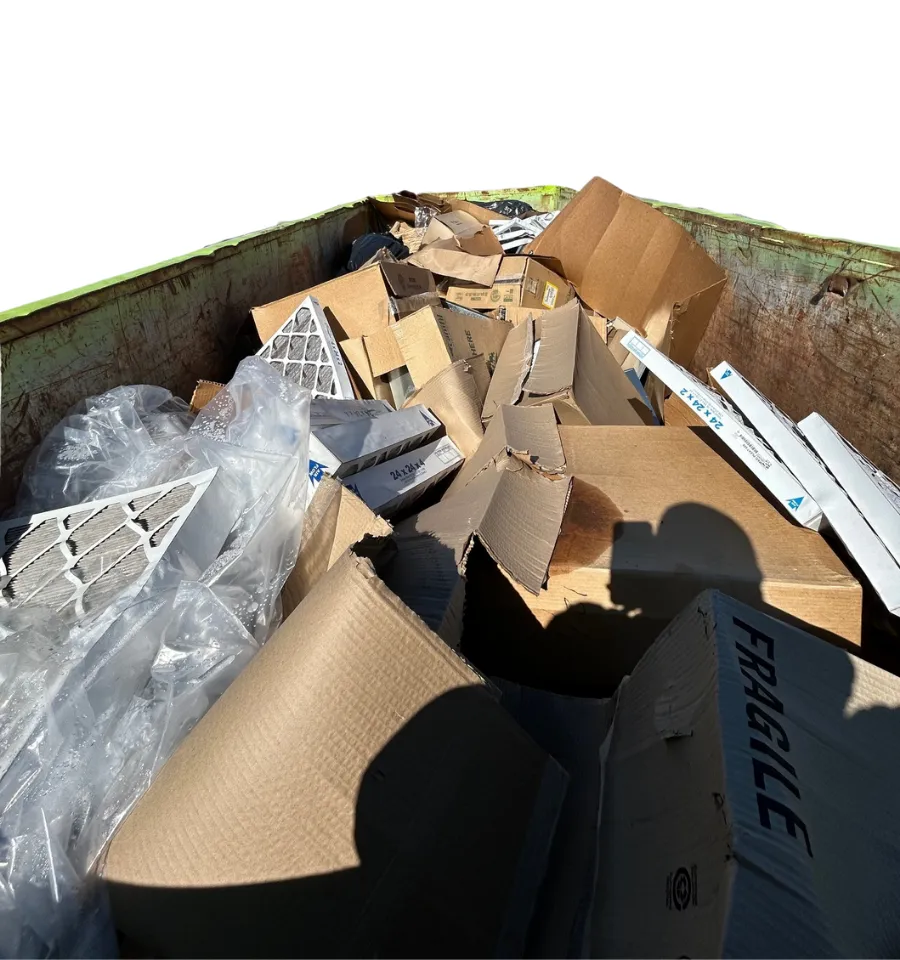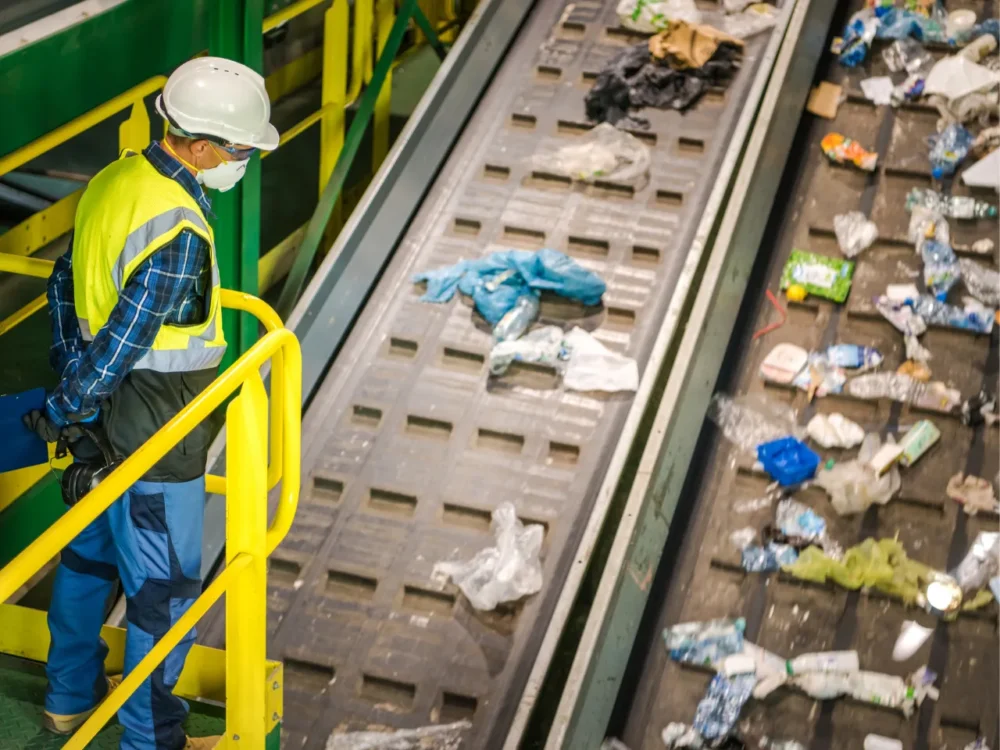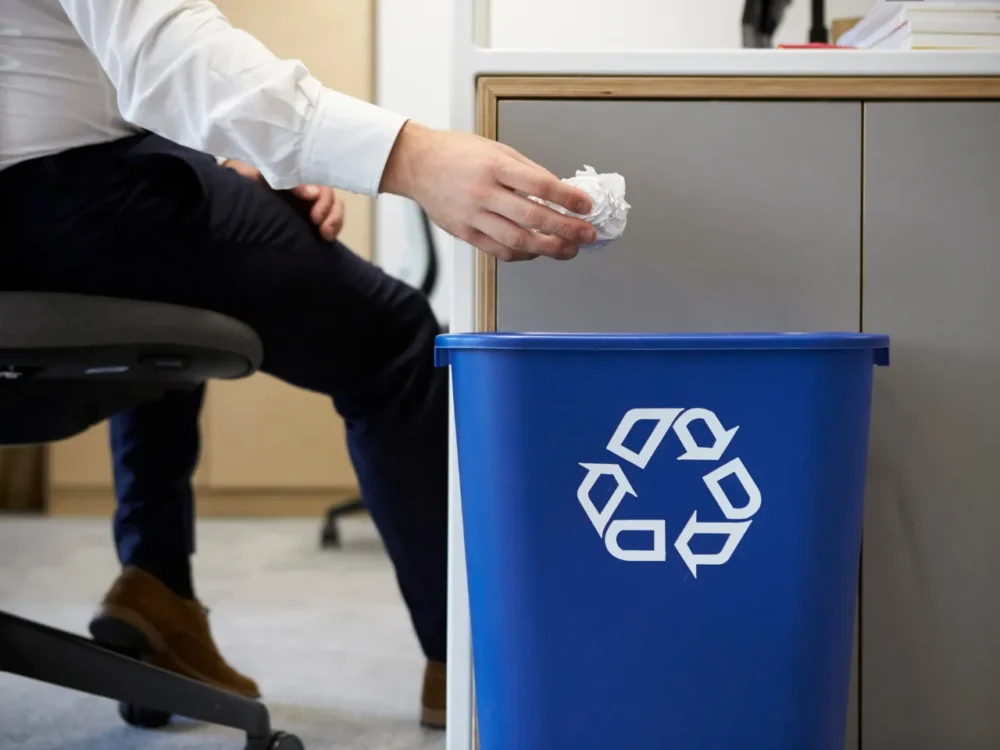Optimize Your Sustainability: 6 Mistakes to Avoid at All Costs
In a context where sustainability is becoming a strategic issue for businesses, waste management takes on crucial importance. Yet, many companies continue to make costly mistakes that harm not only their profitability but also their environmental footprint.
S3R is here to help you simplify this process.
Thanks to our expertise and personalized solutions, we optimize your company’s waste management, generating substantial savings that can be reinvested to support your growth.
This guide identifies the 6 most common mistakes in waste management and offers concrete solutions to avoid these pitfalls.

1. Navigating Without a Clear, Documented Strategy
Problem:
Many companies lack a concrete plan for managing their waste. They simply react to situations instead of implementing a proactive, sustainable, and quantifiable approach. Without a clear strategy, it becomes difficult to measure the effectiveness of actions taken and track progress made.
Consequences:
- Poor understanding of the current situation, preventing the implementation of good solutions.
- Poorly established service contracts leading to exploding disposal costs.
- Compromised regulatory compliance.
Solution:
Establish a documented strategy incorporating measurable objectives, a monitoring schedule, and clearly defined responsibilities. This strategy must integrate an analysis of waste streams, a cost assessment, and opportunities for continuous improvement. Discover our method here.

2. Neglecting to Optimize Waste Stream Management
Problem:
Companies often adopt a “one-size-fits-all” approach to waste management without considering the specifics of each type of waste. This mistake can lead to additional costs and reduce the efficiency of sorting and recycling processes.
Consequences:
- Unnecessary costs for processing materials that could be recovered.
- Increased environmental impact by sending recyclable waste to landfills.
- Lack of consistency in sustainable development goals.
Solution:
Conduct a comprehensive audit of waste streams to identify areas for improvement. Differentiated management of various streams (paper, plastic, organic, hazardous, etc.) will maximize recycling and material recovery.

3. Using Inadequate Equipment and Disposal Systems
Problem:
Many companies lack the proper equipment or disposal systems to efficiently manage their waste. This may include the absence of appropriate sorting bins, compactors, or other waste management equipment. Without this infrastructure, companies miss out on significant financial, environmental, and operational opportunities.
Consequences:
- Missed financial opportunities: the absence of good equipment can lead to higher waste management costs and limit opportunities for waste recovery (such as recycling or selling secondary materials).
- Increased environmental impact: recyclable or recoverable materials often end up in landfills due to poor equipment, increasing the company’s carbon footprint.
- Operational inefficiency: inefficient waste management systems cause disruptions in production processes or cost overruns in terms of logistics and handling.
Solution:
Invest intelligently and calculatedly in modern equipment adapted to managing the different types of waste generated by the company.
4. Poor Knowledge of the Waste Management Market
Problem:
Once waste management measures are put in place, many companies fail to establish a recurring operational structure to ensure that good solutions endure. The lack of regular monitoring often leads to the relaxation of best practices, which can cause cost drift and decreased process efficiency. Additionally, poor knowledge of the different industry players or available solutions can cause numerous delays in the deployment of action plans.
Consequences:
- Uncontrolled costs: Without monitoring, waste management costs can increase significantly, for example due to inefficient use of resources or underutilization of recovery opportunities.
- Wrong solution for a type of need: Companies will often implement unsuitable solutions to better manage their waste. They are thus caught in restrictive contractual agreements that do not allow them to fully deploy their vision.
- Operational impact: Lack of monitoring reduces the company’s ability to identify anomalies or inefficiencies in the waste management process, compromising operational gains.
Solution:
Implement a continuous monitoring system including regular audits and key performance indicators (KPIs) combined with personalized services according to business needs to support the action plan. This helps keep costs under control, adjust processes based on results obtained, and ensure that waste management measures remain effective in the long term.

5. Underestimating the Importance of Staff Training
Problem:
Even with the best waste management infrastructure in place, if employees are not trained to use it correctly, waste reduction efforts fail. Too often, companies do not invest enough in training their teams.
Consequences:
- Confusion about which types of waste to recycle or compost.
- Contamination of recycling streams, leading to additional costs.
- Misperception of waste management as a secondary task.
Solution:
Offer regular training programs accessible to all levels of the company. Integrate regular reminders of best practices via posters, internal newsletters, or update sessions.

6. Ignoring External Experts
Problem:
Some companies attempt to manage all of their waste internally without calling on experts. This can lead them to neglect optimization solutions or potential revenue sources related to their waste.
Consequences:
- A dearth of information on the top-performing industry standards.
- Loss of opportunities for cost reduction or revenue generation.
- Initiatives are often limited by a lack of specialized knowledge.
- Loss of time and velocity to complete the project.
Solution:
Collaborating with partners specialized in waste management, such as S3R, allows you to quickly identify savings and improvements to be made. These experts possess in-depth knowledge of regulations, technologies, and industry best practices, enabling the optimization of waste management while reducing costs. This also greatly accelerates the deployment of these solutions and especially helps maintain them over time.
Unlock your savings potential
In an ever-evolving business environment, companies already have more than enough responsibilities to manage. Waste management represents a valuable opportunity to create value while supporting their sustainability goals. But optimizing waste management, while complying with environmental regulations, can seem like a major challenge. This is where S3R comes in.
With our proven expertise and customized solutions, we take care of all your waste management processes, allowing you to generate substantial savings. These gains can be reinvested in key areas of your business to stimulate growth or in other eco-responsible initiatives.
Trust S3R to transform your waste into an opportunity for sustainability and efficiency.
Starting today, maximize your savings and strengthen your environmental commitment!

